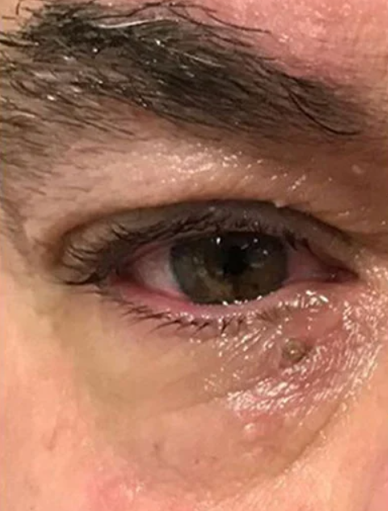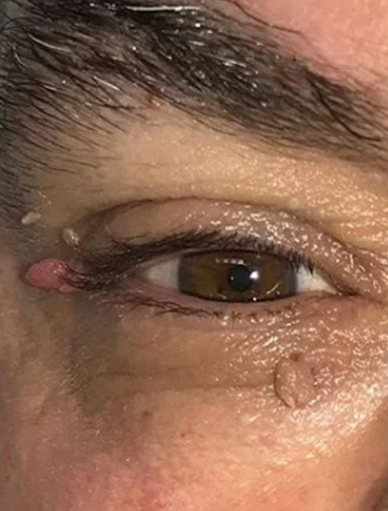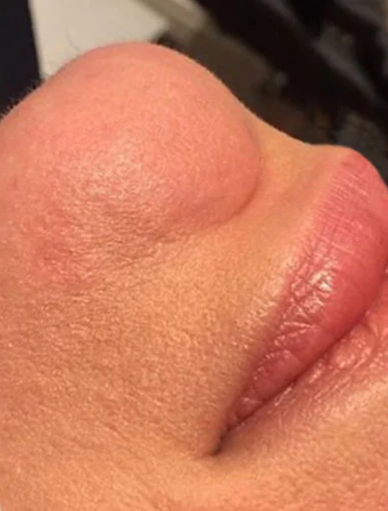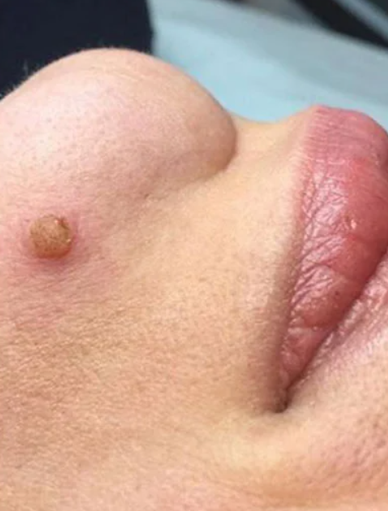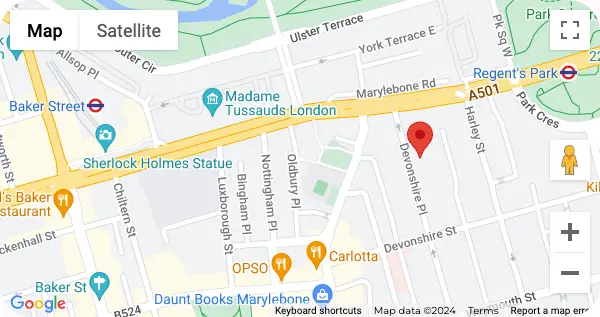Introduction
Laser mole removal is an advanced, minimally invasive procedure designed to remove benign moles. This procedure centers on accuracy, lowers patients’ chances of post-procedural scarring, and permits quicker recovery than more traditional surgical procedures. Understanding the procedure, its benefits, and what to expect is essential before treatment.
What Is Laser Mole Removal?
Laser mole removal works by using focused light energy to target and break down the melanin in pigmented cells of the mole. This method does not require incisions or sutures, unlike surgical excision. The laser passes through the upper layers of skin and targets pigmented tissue without damaging surrounding areas. Those broken-down cells are eventually sloughed off by the body, resulting in a clearer complexion.
This method is commonly selected for cosmetic purposes, especially when the mole is small, superficial and verified as non-cancerous. A pre-procedural evaluation is necessary to exclude malignancy prior to any cosmetic excision.
Suitable Types of Moles for Laser Removal
Laser treatment works best on superficial moles that are flat on the surface of the skin. It works very well on flat or slightly raised moles with even coloration. Moles that are deeper or irregular in shape often require surgical excision for complete removal. Other pigmented lesions, such as freckles and sun spots, can be treated with the same laser technology, assuming they are benign.
How Does Laser Mole Removal Work?
The laser delivers focused light energy that is absorbed by the pigment in the mole cells. The absorption creates controlled heat that breaks down the pigmented tissue into microscopic fragments, which are then removed by the body’s natural healing process. The laser only focuses on the mole tissue, doing relatively little damage to the layer of healthy skin above it.
Types of Lasers Used
- CO2 Laser: This laser system employs carbon dioxide energy to ablate the skin tissue very accurately. It’s also very suitable for raised moles, and allows for precise pinpointing of the targeted spot without damaging normal surrounding tissue.
- Erbium Laser: Suited for surface-level concerns, this laser targets water in skin cells and is effective for treating superficial moles, promoting faster healing.
Both types are widely used in cosmetic dermatology in the UK and are recognised for their ability to deliver predictable results.
Procedure Steps
- Initial Assessment: The mole is examined to determine it is harmless and suitable for removal with a laser.
- Preparation: The skin is cleaned and a local anaesthetic cream may be used to make the procedure less painful.
- Laser Application: Focused energy of the laser is pulsed into the mole.
- Immediate Care: Cool the treated area and apply calming solutions for redness.
- Aftercare Guidance: They will be provided with thorough guidance on how to care for the wound and protect the healing skin from the sun.
Benefits of Laser Mole Removal
- Minimal Scarring
Since there are no incisions or stitches, laser mole removal significantly reduces the risk of noticeable scarring compared to surgical techniques. The skin typically heals to be more smooth.
- Quick Recovery Time
Healing is usually quicker than with excision, since no sutures or wound care are required. Once the session is over, most people can go right back to their daily activities, but they might experience mild redness for a little while.
- Precision and Safety
Lasers enable selective targeting of pigment-generating cells, thus minimising the risk of damage to the adjacent skin and facilitating predictable cosmetic results. With the controlled nature of the procedure, the risk to surrounding tissue is minimal when performed in a clinical setting.
- Versatility for Various Mole Types
This method works well for different benign pigmented lesions, making it a versatile choice for individuals with multiple cosmetic skin concerns.
Cosmetic Mole Removal vs. Surgical Excision
Surgical excision is necessary for atypical or malignant moles to allow for histopathologic evaluation. But in the case of benign growths such as moles, the procedure gives less downtime and better cosmetic outcome without the need for suturing or large scars.
Advantages over Shaving and Freezing Techniques
When you shave, you are only cutting off the raised part. This can leave pigment behind and may increase the likelihood of recurrence. Cryotherapy (freezing) can lead to erratic skin tone. Many patients will obtain a better and more cosmetically acceptable result with laser treatment.
What to Expect During a Laser Mole Removal Procedure
- Pre-Treatment Consultation
A detailed consultation is required to determine that the mole is appropriate for laser treatment. This consists in reviewing medical history, evaluating the skin types and setting feasible treatment objectives.
- During the Procedure
The procedure is generally well tolerated, with only minor discomfort because of the application of topical anaesthetic. A mild tingling or warmth is commonly experienced as the laser is applied. It can take from 30 seconds to five minutes per mole, though generally it’s just a couple of minutes for each mole.
- Post-Treatment Care
The skin may be slightly red or swollen after treatment. The treated tissue may crust over very slightly as it heals. It is recommended to the patients that they must not sunbathe, keep the treated area clean, avoid sun exposure and apply recommended topical products during recovery. Full recovery is common within one to two weeks.
Effective & professional doctor-led Laser Mole Removal at our central London clinic
Verified Before & After
Verified Before & After
What to Look for in a Clinic
To avoid complications, choose a clinic that uses medically approved laser technology and adheres to strict safety protocols. Experience of the professional, dermatologist, or cosmetic surgeon who is dealing in cosmetic dermatology, will be a reliable factor for accurate treatment with minimal complications. A well-performing clinic should also be open about what to expect and aftercare.
Questions to Ask Your Practitioner
- What kind of laser will be used?
- How many treatments will I need for complete clearance?
- What aftercare measures are essential for best healing?
These questions help ensure clarity and confidence in the chosen treatment.
Is Laser Mole Removal Right for You?
- Ideal Candidates
This treatment is for people who have benign moles that they would like removed for cosmetic reasons. This is especially ideal for those who are looking for a non-invasive procedure and little recovery time.
- Considerations and Contraindications
For such moles laser removal is not appropriate, especially if they have irregular edges, change color, or grow quickly. It is also not appropriate for those with specific skin conditions, infections of the treatment area, or a history of keloid scarring. A comprehensive review will lead to the best therapeutic option.
Conclusion
Laser technology provides a powerful way to remove unwanted moles by destroying pigment cells in a safe way without damaging the skin, causing pain, scarring, or stitches, and minimising recovery time. It offers a balance between precision and minimal invasiveness, making it a preferred choice for many cosmetic concerns.
Before undergoing any cosmetic mole removal, it is essential to seek professional advice to confirm suitability and receive expert guidance on aftercare. Harley Street Skin Clinic remains committed to providing advanced, patient-focused solutions using industry-leading laser technology.
Reserve a mole removal appointment
One of our experts will be more than happy to answer any questions you have.
Book AppointmentWP L
★★★★★
I had a wonderful experience from the moment I walked in! The receptionist was incredibly warm and friendly, and the doctor was exceptionally professional and made me feel completely at ease.
13th February 2026
Mali
★★★★★
Amazing clinic, always so accommodating, always thrilled with the results. Been attending this clinic for years and it’s definitely one of the best in the Harley Street area!
14th February 2026
Luísa Moura
★★★★★
Had the Morpheus treatment with Rose, she was very kind and explained everything in detail. I highly recommend the clinic and her services.
13th February 2026




